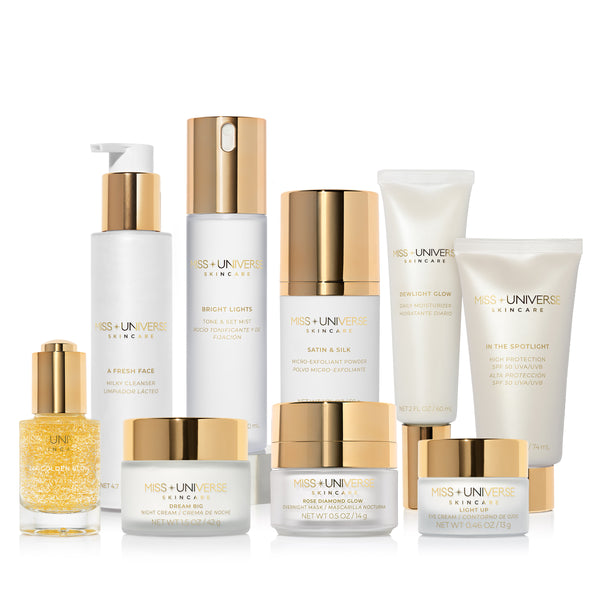Bragging Rights
Explore the latest trends, tips, and stories that make you stand out.
Skincare Secrets That Will Leave You Glowing
Unlock radiant skin with these skincare secrets! Discover tips for a glowing complexion you won’t want to miss.
5 Essential Skincare Ingredients for a Youthful Glow
Achieving a youthful glow largely depends on the use of the right skincare ingredients. Here are five essential components to consider for your skincare routine:
- Retinol: Renowned for its ability to promote cell turnover and reduce the appearance of fine lines, retinol is a must-have in anti-aging skincare.
- Vitamin C: This powerful antioxidant brightens the skin, evens out skin tone, and fights free radicals, making it essential for maintaining that youthful radiance.
- Hyaluronic Acid: Known for its incredible hydrating properties, hyaluronic acid helps plump the skin and diminishes the look of wrinkles.
In addition to the first three, don’t overlook these two crucial ingredients:
- Niacinamide: Also known as Vitamin B3, niacinamide improves skin elasticity, enhances the barrier function, and evens out skin tone, contributing to a more youthful appearance.
- Sunscreen: Ultimately, protecting your skin from UV damage is vital. Daily use of a broad-spectrum sunscreen can prevent premature aging and ensure your skin stays radiant for years to come.

The Ultimate Nighttime Skincare Routine for Radiant Skin
An effective nighttime skincare routine is essential for achieving radiant skin. Begin by thoroughly cleansing your face to remove makeup, dirt, and impurities that accumulate throughout the day. Use a gentle cleanser suited to your skin type; for example, a foaming cleanser works wonders for oily skin, while a cream-based option is ideal for dry skin. After cleansing, consider incorporating an exfoliating product 2-3 times a week to slough off dead skin cells and promote cell turnover, leaving your complexion looking fresh and youthful.
Once your skin is clean, it’s time to apply a toner to balance your skin’s pH and prep it for the following products. Follow up with a serum rich in antioxidants or hyaluronic acid to deeply hydrate and target any specific concerns, such as fine lines or dark spots. Finish your routine by applying a nourishing moisturizer that locks in hydration; look for ingredients like ceramides or squalane to seal the deal. Remember, consistency is key, so make this your ultimate nighttime skincare routine to unveil the radiant skin you desire.
How to Choose the Right Sunscreen for Your Skin Type
Choosing the right sunscreen for your skin type is essential for effective sun protection and overall skin health. Start by determining your skin type: oily, dry, combination, or sensitive. For oily skin, look for sunscreens labeled as oil-free or non-comedogenic, which won’t clog pores. If you have dry skin, opt for a sunscreen that contains moisturizing ingredients like glycerin or hyaluronic acid to hydrate your skin while providing protection. Sensitive skin types should consider mineral-based sunscreens with zinc oxide or titanium dioxide, known for their gentle properties.
Another critical factor to consider is the sun protection factor (SPF). A broad-spectrum sunscreen with an SPF of at least 30 is recommended for most skin types. If you plan to be outdoors for extended periods or during peak sun hours, consider using a higher SPF. Additionally, consider the formulation: creams are ideal for dry skin, while gels or sprays work better for oily skin. Always remember to perform a patch test when trying a new product and reapply every two hours, or after swimming or sweating, to ensure continuous protection.